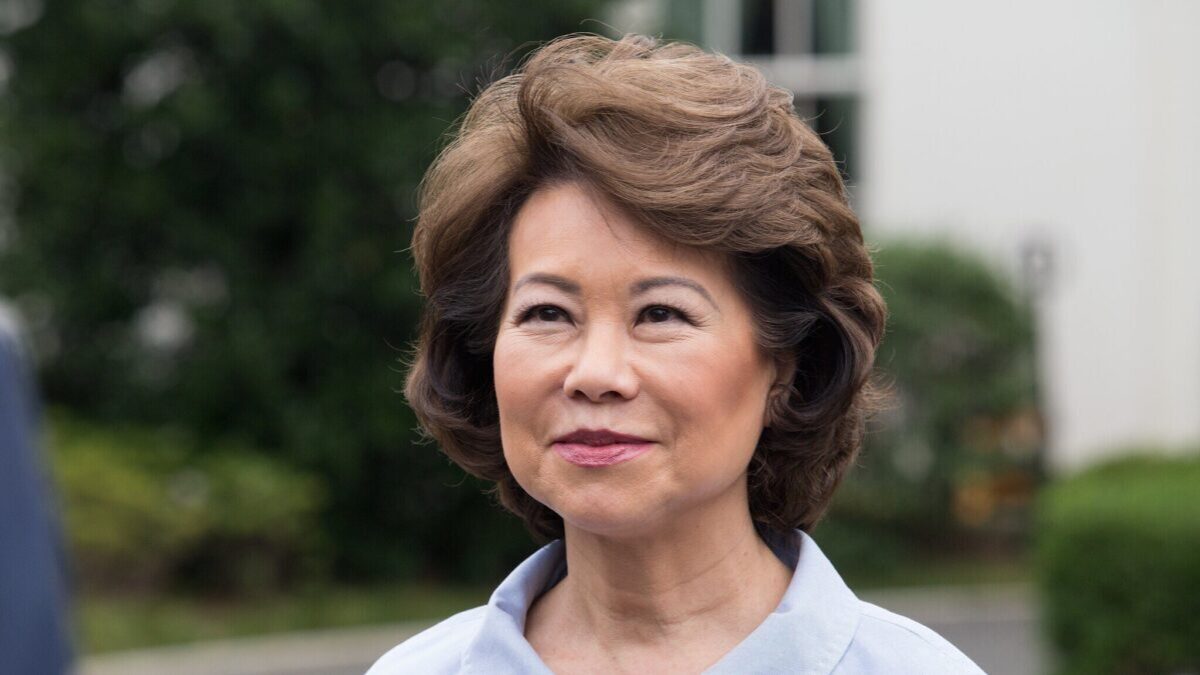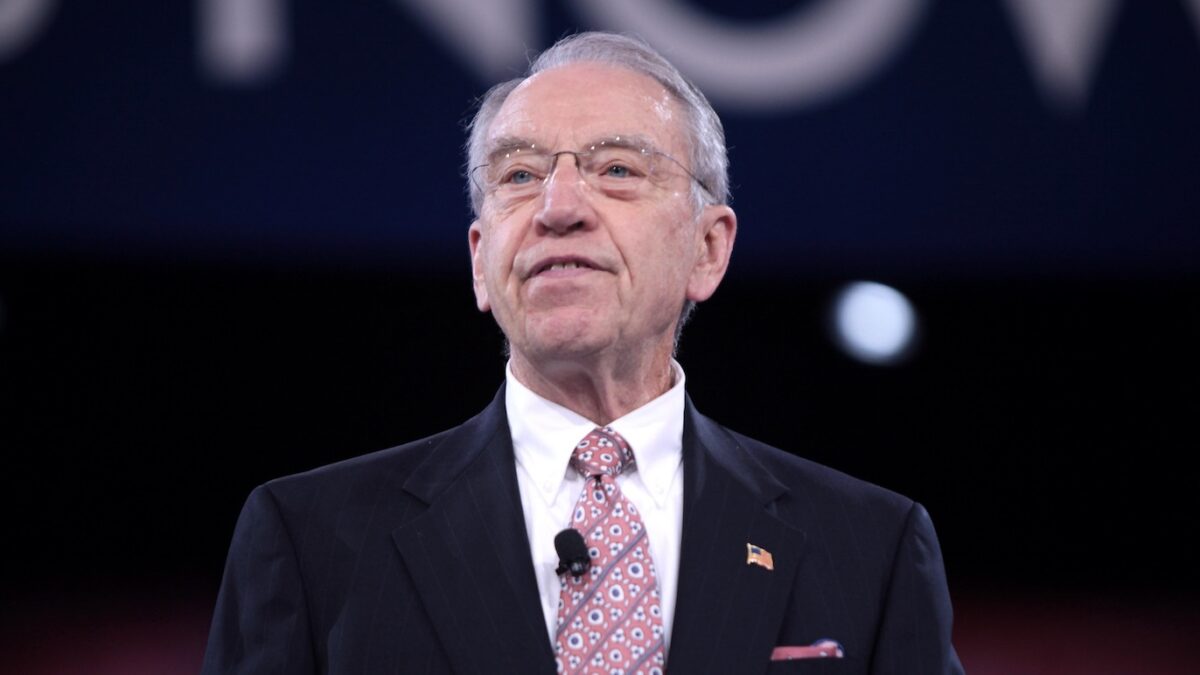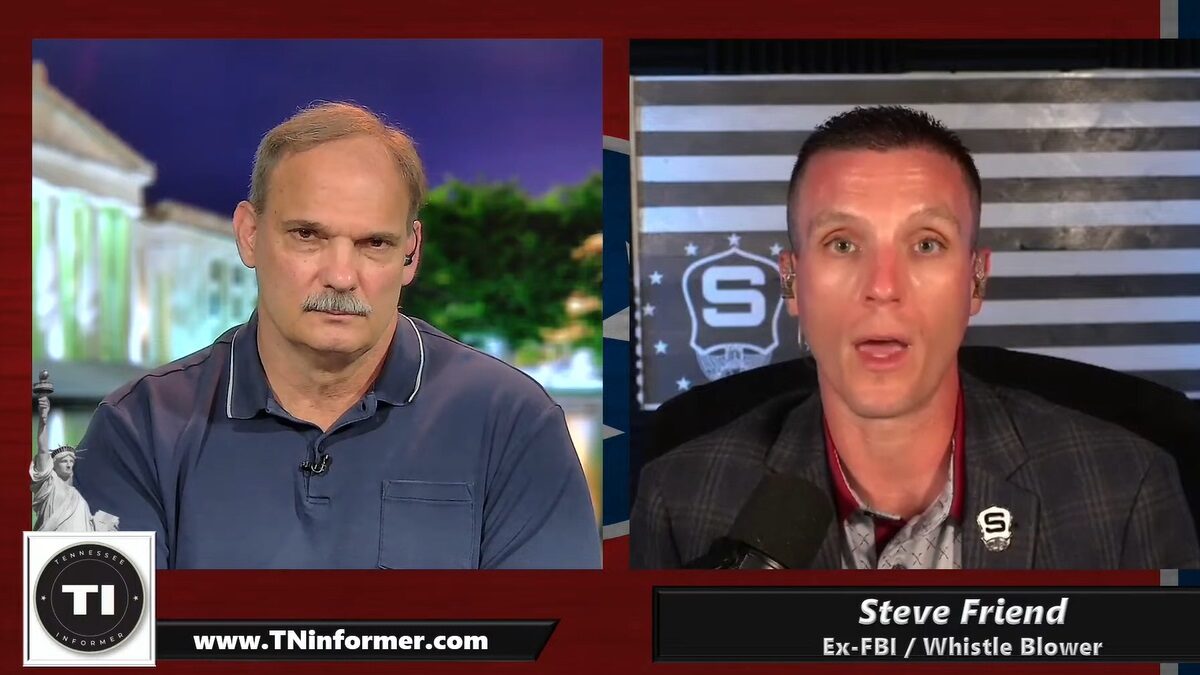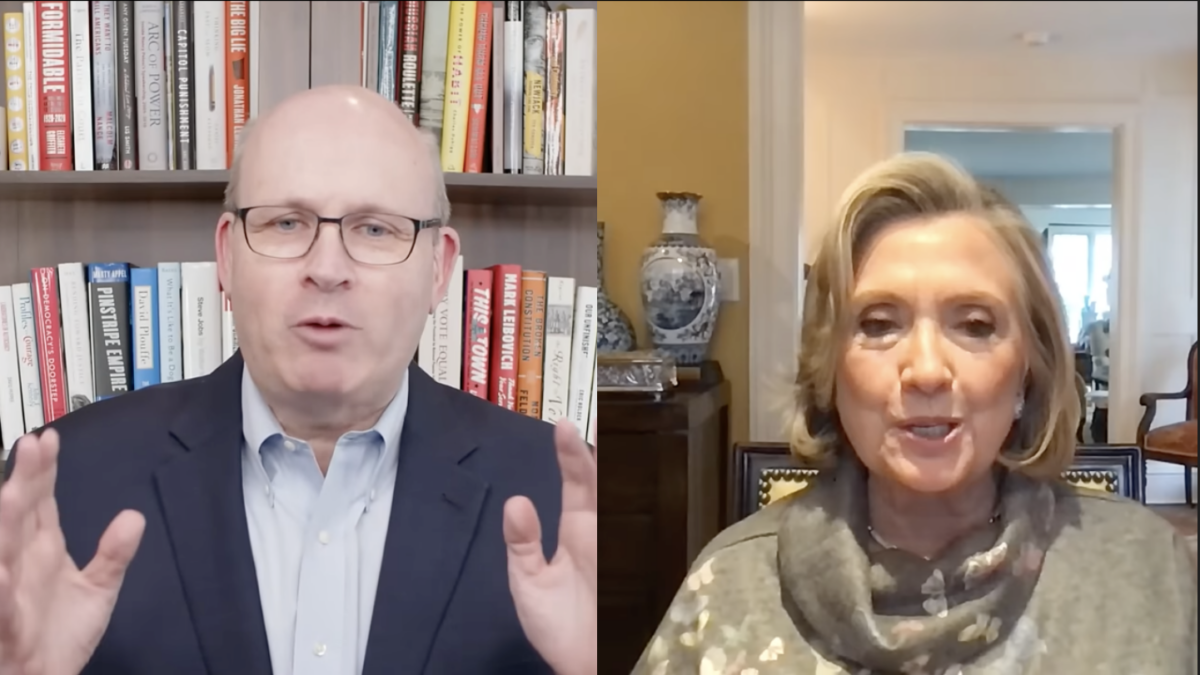For decades, Senate Minority Leader Mitch McConnell and his wife Elaine Chao have maintained a glaring conflict of interest, conducting extensive government business despite the Chao family’s deep ties to China through a maritime shipping company. Now, former President Donald Trump is calling attention to the top Republican’s problematic China ties, while most of Washington remains silent.
“Why do Republicans Senators allow a broken down hack politician, Mitch McConnell, to openly disparage hard working Republican candidates for the United States Senate[?]” Trump asked in a Truth Social post on Sunday. “This is such an affront to honor and to leadership. He should spend more time (and money!) helping them get elected, and less time helping his crazy wife and family get rich on China!”
It didn’t take long for the corporate media to mock Trump’s assertion, framing his legitimate criticism of McConnell and Chao as unfair and unjust. Some outlets such as Vanity Fair even hinted that Trump’s comments were revenge against Chao for resigning from the Trump administration following the 2021 Capitol riot and subsequently cooperating with the illegitimate Jan. 6 Committee.
Trump’s criticism of McConnell and Chao, however, is not something to be taken lightly. For years, the McConnell and Chao families have maintained a symbiotic relationship that grants opportunities to the Chaos’ shipping company, Foremost Group, which largely operates in and on behalf of communist China.
This reciprocity is well documented, but unlike with Hunter Biden, there is less scrutiny from observers, including those on the right, for this “corruption by proxy,” as author and Government Accountability Institute President Peter Schweizer calls it.
Blood Runs Thicker than Water
As Schweizer documented in his 2018 book “Secret Empires: How the American Political Class Hides Corruption and Enriches Family and Friends,” McConnell took a strong stance against China before his marriage into the Chao family. According to Schweizer, it was a 1994 trip arranged by James Chao, McConnell’s father-in-law, and sponsored by China State Shipbuilding Corp. (CSSP), one of the CCP’s largest military contractors and reportedly an unofficial arm of the CCP navy, to meet the Chinese president that pushed McConnell to “increasingly avoid public criticism of China.”
That’s likely because Chao and her family are well-connected in communist China thanks to her father’s company. Foremost is technically based out of New York but largely operates out of China, where at least 70 percent of its freight, mostly industrial, is delivered. Not only are a majority of Foremost’s ships built in state-owned shipyards, but some are even financed by the Chinese Communist Party. They are then used to deliver cargo outlined in contracts with the communist government, which has clearly stated goals to rapidly expand its industries to compete with the U.S.
Foremost and the Chao family have benefitted from loans estimated to be between $350,000 and $1 million from the U.S. government and loans from Chinese banks known by the Trump administration as threats. Again, this is a company owned by the father-in-law of America’s top congressional Republican and the father of the former transportation secretary. Not only do Chao’s father and sister Angela Chao still share leadership over Foremost, but the pair also once sat on the board of an offshoot of the CSSP together.
This trend of the Chao family expanding their influence in China only continued as McConnell and his wife burrowed deeper into the American political system. When Trump named Chao head of the Department of Transportation in January of 2017, her family publicly rejoiced — likely at the opportunity to further their business interests. That same month, Chao’s sister Angela was named independent non-executive director of the CCP-affiliated Bank of China.
Even though the Trump administration took a hardline stance against China and its intent to compete with the U.S., the Chao family company proceeded with the purchase of 10 new ships from the Chinese government. That strategic buy expanded the Foremost fleet capacity by more than 40 percent, enabling the company to do even more business with the CCP. It also came shortly after Chao secured a spot in the Trump Cabinet overseeing an industry in steep decline thanks to competition with China.
While China sought to expand its maritime endeavors, it was under Chao’s leadership that the Department of Transportation proposed budget cuts for programs meant to stimulate American shipping and mariners.
How to ‘Get Rich on China’ 101
McConnell still expresses some support for curbing China’s ascent, but whether his concern is sincere or political is difficult to say.
Not only do McConnell and Chao’s family members financially benefit from doing business with communist China, but so have McConnell and Chao. The political duo may not have a formal stake in the Chao shipping empire, but they have certainly amassed wealth from the business.
The biggest evidence for this came in 2008. Just one year after James Chao joined CSSC Holdings, in addition to running Foremost, McConnell received a “gift” of $5 to $25 million from his father-in-law. As Politico reported, that payment significantly bumped McConnell’s net worth, which was measured at around $3.1 million in 2004, to between $9.2 million and $36.5 million in 2014.
Several members of Chao’s family, including Angela and James, also contributed more than $1 million to McConnell’s re-election campaigns. In other words, the founder of an unofficial arm of our top adversary’s navy is helping keep McConnell in U.S. leadership. According to Schweizer, these kinds of payments could have been money designed to keep a favorable relationship between McConnell and the Chao family.
“Foreign governments and oligarchs like this form of corruption because it gives them private and unfettered gateways to the corridors of Washington power,” Schweizer wrote in his book “Empires.” “Foreign entities cannot legally make campaign contributions, so using this approach creates an alternative way to curry favor and influence America’s political leaders. Simply camouflaging these transactions as business agreements provides another shield of plausible deniability.”
Status and Power
The Chao family has also amassed wealth by trading on their ties to McConnell.
While public officials — such as Chao from 2017-2021 — are barred from using their status to grant favors to friends and family, Chao publicly supported her family’s financial endeavors onscreen. Despite avoiding U.S. press appearances in her capacity as transportation secretary, Chao joined her father for dozens of appearances on Chinese and Chinese-American television where she regularly boosted Foremost and the work her family does out of China.
One interview was seemingly hosted at the DOT office with the agency’s flags displayed in the background.
“In at least one other interview appearance, the Transportation Department flag and the state flag of Kentucky, the state Chao’s husband, Senate Majority Leader Mitch McConnell (R) represents, both appear in the background,” the Hill reported.
Chao also granted her China-sympathetic family access to the president of the United States, a political connection that her father coveted and later boasted about in interviews, sometimes with communist state-owned media.
“The president spent several minutes with me,” James recounted in one interview after talking with Trump aboard Air Force One. “We were talking about business.”
That comes as no surprise considering that, ahead of her first scheduled visit to China as a member of the Trump administration, Chao requested that accommodations be made for at least one family member to join her trip. She also asked for her shipping industry relatives in China to be included in transportation-themed meetings with government officials. Her trip was quickly canceled once the press raised ethical concerns.
Consequences?
It wasn’t until 2017, decades after McConnell and Chao began to benefit from their family’s ties to China, that the House Committee on Oversight and Reform sent a letter to Chao demanding that she explain her public elevation of her family’s maritime company.
In 2021, months after she resigned from the Trump administration, the Office of Inspector General for the Department of Transportation released a report confirming that Chao “used her official position and taxpayer resources for the benefit of herself and her family.”
Evidence of wrongdoing in the OIG report was communicated in a criminal referral to the Department of Justice U.S. Attorney’s Office for the District of Columbia and the DOJ Public Integrity Section, but none of the agencies decided to open an investigation.
Chao may no longer hold an official place in the federal government, but she remains a large player in Washington, D.C., through her new role as a board member for the Smithsonian’s Asian Pacific American Center. McConnell, on the other hand, is still the highest-ranking Republican in Congress, who could reassume leadership if the GOP takes back the Senate. Whether voters like it or not, McConnell will likely determine the steps Congress takes to keep communist China’s hands out of the U.S. government.
Given this track record, the likelihood that McConnell will support policies that curb his family’s fortunes is questionable at best. That’s why Trump’s criticism of the McConnells’ close personal and professional relationship with China is long overdue. At a time when Republicans are questioning McConnell’s ability to advance the new GOP’s agenda, raising these connections is nothing short of necessary.









